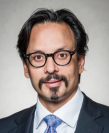It Is interesting to note that while there are now quite a few global brands emerging from the Middle East, like Emirates airline and Al Jazeera TV, the Islamic banking and finance sector has so far failed to produce a globally recognized and respected brand. Though there are a number of strong Islamic banking brands, like Dubai Islamic Bank and Kuwait Finance House, the industry has yet to produce a global mega-brand.
The story is even grimmer when it comes to Islamic asset management. There is no specialized Islamic firm amongst the world’s 500 largest asset managers.¹ According to the Islamic Financial Services Board (IFSB), Islamic funds have only US$64bn under management.2 More worryingly, the IFSB report concludes that despite a steady growth over the last decade, Islamic funds have been notably slow to develop any real market depth or sophistication.
Given the estimated US$6tn in assets held by Islamic banks, sovereign funds and ultra-high net worth individuals from Muslim-majority countries,3 and given a global population of 1.6 billion Muslims, there is a considerable imbalance between the current size of the Islamic asset management industry and the potential demand for its products.
However, this may not be true for much longer.
While working at Barclays Capital, a group of senior bankers under the leadership of Omar Selim conceived of a fund management company that would combine an Islamic investment methodology with the principles of sustainable and responsible investment and state-of-the-art portfolio management. Arabesque’s aim is to build investment products that generate the same or better risk/ return profiles than comparable conventional funds, while at the same time being in compliance with the value preference of its investors Since leaving Barclays, they have made it happen.
It is called Arabesque, and now has a global presence. Its headquarters are in London, and it has a research, advisory and distribution presence in Frankfurt, Germany. The new firm has applied for authorization from the Financial Conduct Authority in London, and it hopes to open its doors for business very soon.
At the heart of Arabesque’s vision is the conviction that sustainable and responsible investment is now an imperative. “The world has moved on,” said Omar Selim, Arabesque’s founder and CEO. “There is now an additional dimension to investing — a double bottom line. It is no longer good enough for investments to yield a return. Today, people should care precisely how that return is made.


The future is very clear. Investments need to be sustainable and responsible. At the same time, the balance of risk and return profiles are more key than ever, with an immense focus on how robustly investments are protected against the downside. These two convictions encapsulate Arabesque’s core principles.”
Sustainable and responsible investing may require:
- exclusions based on a company’s business involvement
- compliance with internationally accepted values such as the UN Global Compact
- integration of environmental, social and governance (ESG) issues into investment management
- direct engagement with portfolio companies
Sustainable and responsible investors share two critical priorities with Islamic investors. The first is a demand for superior risk and return profiles of their investments. The second is to comply with the investors’ convictions and values.

The benefits of sustainable and responsible investing have been recognized for a long time, but to bring home their importance, Arabesque has partnered with the University of Oxford to investigate the direct impact of environmental, social and governance (ESG) issues on a company’s financial performance. The resulting Arabesque/Oxford case study research, combined with an analysis of more than 160 academic studies, has demonstrated that companies showing high ESG scores enjoy superior financial performance. Andreas Feiner, Arabesque’s Head of Values-Based Research and Advisory, explains, “Our research with Oxford shows, most importantly, that investments into companies with high ESG scores suffer fewer tail-risk events and a superior return over the medium to longer term.” Arabesque’s focus on sustainable and responsible investing is sewn into the firm’s DNA, along with its commitment to Islamic investing in line with AAOIFI standards.
Islamic investing requires:
- exclusions based on a company’s business involvement (e.g., conventional finance, weapons, alcohol, tobacco, etc.)
- exclusion of companies that hoard cash or have excessive leverage on their balance sheet
- purification of dividends
The founding partners of Arabesque believe firmly that there is a considerable overlap between the core concepts of sustainable and responsible investing on the one hand and Islamic investing on the other, and they point to copious academic studies in support of Arabesque’s Head of Islamic Products, Dr Dominic Selwood, explains why. “Sustainable, responsible and Islamic investment values are all based on financial moderation and common sense — valid across regions, cultures and faiths. For example, we have found a 100% overlap between the ten principles of the UN Global Compact and the Qu’ran and the Hadith. And the same could be said of the core tenets of many other faith traditions.”
At the core of Arabesque’s product offering is the Arabesque Prime League, which comprises the eligible investment universe for all Arabesque’s funds. It is the result of a sophisticated screening process which filters the world’s 77,000 major stocks via six steps:
- Suitability Screen: selecting the most liquid and tradable stocks
- Forensic Screen: avoiding companies that show signs that might indicate fraudulent behaviour
- UN Global Compact: compliance with the 10 principles, which are based on universally accepted principles governing human rights, labour, the environment and anti-corruption
- ESG: integrating environmental, social and governance criteria into the investment process in line with the first principle of the Principles of Responsible Investing
- Portfolio Refinement: sustainable balance sheet and business involvement screening based on Islamic principles in line with AAOIFI standards
- Active Ownership: proxy voting and direct company engagement in line with the second principle of the Principles of Responsible Investing
Arabesque is proud of its success in implementing this robust screening matrix. “We have partnered with world-class and experienced research companies,” continued Andreas Feiner. “They support Arabesque’s selection of a globally diversified equity portfolio in compliance with universally accepted values. The resulting investment universe appeals to Muslim and non-Muslim investors alike.”

At inception, Arabesque will offer investors three distinct global equity funds:
- Arabesque Prime Global Equity Fund: a globally diversified portfolio of equities which tracks the performance of the Arabesque Prime League.⁷ The objective is to outperform the MSCI World by an average of 1% over three to five years.
- Arabesque Fundamental Global Equity Fund: a selection of stocks from the Arabesque Prime League, chosen using a fundamental screening technology. The technology is currently applied live on the MIZAN fund, a US Collective Investment Trust with a 5-star rating from Morningstar. This strategy has been applied to US stocks for over a decade, on assets in excess of US$1bn. The objective of the fund is to outperform the MSCI World by an average of 3% over three to five years.
- Arabesque Systematic Global Equity Fund: a selection of stocks form the Arabesque Prime League, chosen using Arabesque’s proprietary Adaptive Risk Technology (ART). The ART was developed by the founders of Arabesque at Barclays Capital, and was a core element of the intellectual property Arabesque’s senior management purchased from Barclays in 2013.
The ART works by dynamically adjusting the exposure into equities between 0% and 100% of the portfolio value. No leverage or short positions are allowed. The objective of the fund is to deliver an average return of 10% annually over three to five years with maximum drawdowns of less than 20%.
The core Arabesque team began work on the vision at Barclays, but since leaving they have quickly expanded to take on a range of international professionals, including industry-leading investment managers and quantitative scientists. “We are delighted to benefit from so much inter-disciplinary talent,” Omar Selim confirmed. “Arabesque is about strength through building on a wide range of expertise and experience.”
The firm has engaged a formidable advisory board comprising leading academics in the fields of sustainable investing and financial modelling, as well as prominent industry names in the realms of Islamic and sustainable finance. Advisers include Colin Melvin, CEO of Hermes Equity Ownership Services, who was the first chairman of the UN Principles for Responsible Investment; Prof. Rob Bauer, the leading expert on sustainable investing, Maastrichy University; Michael Jantzi, CEO of Sustainalytics; and Mohamed Donia, CEO of Idealratings.
Their Islamic board is global and comprehensive, comprising Sheikh Nizam Yaquby (chairman), Dr Muhammad Elgari (member), Dr Aznan Hasan (member), and Professor Humayon Dar (secretary). “For us, the question of Islamic investing is not just one of fulfilling technical requirements,” Dr Dominic Selwood explained. “We are delighted to be partnering with a board that embraces the wider call to the international Principles of Responsible Investment.”
At the beginning, I alluded to the gap between the US$64bn under management in Islamic funds and the US$6tr in Muslim assets. The question I pose is: why is there this gap in the current demand and the potential size of the market? I believe that there is only one answer. The Islamic asset management industry has failed to create a brand with which Muslim investors would like to associate themselves.
As I mentioned, that could now all be about to change. Omar Selim and his team believe that Arabesque will fill this gap when it opens its doors soon: for Muslims and non-Muslims alike.



